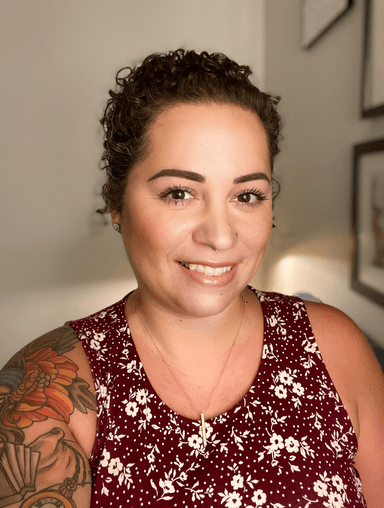Real estate teams aren’t new, but the way brokerages support and integrate them is shifting fast. “It’s not one size fits all,” said Ines Hegedus-Garcia, managing partner of Avanti Way Realty in Miami, at NAR NXT, The REALTOR® Experience, in Houston.
The definition of a modern team has expanded, she said. They are more diverse, more specialized and more individualized than ever before—and they expect their brokerages to be just as adaptive.
Hegedus-Garcia and two other brokerage leaders discussed strategies and practices they’ve adopted to better evaluate team fit, set clear expectations and provide meaningful support for teams at every stage of development.
Recruiting Teams With Intention

Team recruitment today looks very different from even a few years ago. Shannon Buss, vice president and broker of Sotheby’s International Realty in Cape Cod, Mass., noted that the agents approaching her aren’t asking about transferring listings or paperwork logistics. They’re evaluating multimarket strategies and opportunities to expand their businesses in smarter, more sustainable ways.
For Drew Coleman, founder of Opt Real Estate in Portland, Ore., the first filter is culture. Teams operate like “an office within an office,” he said, and their internal dynamics can reinforce or disrupt a brokerage’s values. Coleman looks for alignment, transparency and realistic business foundations when he’s evaluating a team.
Hegedus-Garcia agreed that alignment is critical. She looks closely at what a team has built so far and whether her brokerage can meaningfully enhance it. Reputation matters, too, especially in a digital era where social visibility is immediate and lasting, so she does her research ahead of time.
Understanding the ‘Why’ Behind Every Team

Each leader emphasized the importance of brokers understanding why a team wants to form or move. Buss sees a growing number of agents seeking what she calls “life leverage”—a need for balance after building strong but demanding businesses. These agents aren’t necessarily chasing higher production; they’re looking for long-term sustainability, and they’re willing to make some tradeoffs to have more freedom in their schedules.
The rise of AI is also reshaping motivations. Buss said that she’s finding specialization to be increasingly important, and it’s something she champions at her brokerage and among teams in the Cape Cod market, where the need for specialization is abundant.
Hegedus-Garcia added that many agents who believe they want “teams” actually need systems instead. With AI-powered workflows and clearer processes, many solo agents can scale effectively without hiring others.
This is why it’s important to ask questions and communicate at every step, Buss said. A broker needs to understand the various motivations agents have to start teams or bring their teams over, and brokers need a clear understanding to determine if the fit is right.
Setting Guardrails Early

Once a team joins, structure becomes essential. Coleman requires meetings with every incoming team member to ensure culture fit and clarity around responsibilities. At his brokerage, team leaders take on duties typically handled by the brokerage—everything from oversight to conflict management, and leaders must understand those expectations from day one.
Buss stressed the importance of detailed contracts and candid conversations. She’s been in the business long enough to know that the only successful teams are the ones that planned extensively before the first deal ever came in. “You can’t overplan,” she said. “You can’t overcommunicate.” Clear documentation ensures there’s a shared understanding of who owns each client, how leads are distributed and what happens if someone decides to leave.
Even with strong planning, challenges can arise. Hegedus-Garcia described a partnership that dissolved despite extensive support—causing two leaders and five team members to reorganize, and one team to leave the brokerage. The restructuring was amicable only because the brokerage had extensive documentation, communication protocols and conflict-resolution systems in place.
Providing the Support Today’s Teams Actually Want
All three broker panelists agreed: Today’s teams don’t want templated guidance. They want strategic partnership.
At Avanti Way, Hegedus-Garcia treats teams like branches. Her tech-forward brokerage provides complete backends with production dashboards, granular KPIs and data-driven business reviews. Teams have regular meetings with her, and they get tailored growth plans to make sure they’re tracking toward their goals. The access they have to tech infrastructure, typically reserved for brokerage-level operations, helps them run a smooth business.
Buss approaches support through leadership and strategic planning. She pulls from her background in DiSC assessment and organizational development and quarterly “mini retreats” to review goals, evaluate performance and refine growth plans. Teams, she said, want a brokerage leader who is actively learning, evolving and studying the broader business landscape. “They want a CEO,” she said, and they want access to that leadership.
Coleman focuses on clarity and future-casting. The real estate market is constantly shifting, and that means teams need regular guidance that evolves to help them meet their goals in the context of that constant change. He encourages leaders to adopt tools like the Entrepreneurial Operating System (an educational platform) that help entrepreneurs get what they want from their businesses to forecast growth and stay accountable.
Looking Forward: Smaller, Smarter, More Specialized
The team landscape will continue evolving alongside broader industry trends. For example, smaller independent brokerages that aren’t performing the way they’d hoped are increasingly joining larger firms as teams, which allows them to maintain autonomy while gaining the scale and support they need to stay profitable.
Brokerage leaders who want to stay ahead must be willing to put in the work upfront and ask detailed questions to help teams future-proof their businesses. Today’s teams are looking for more than a brokerage. They want a strategic partner who can help them move smarter and create sustainable businesses.









